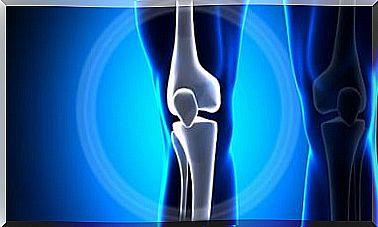Neurogluten: Gluten And Neurological Diseases
The consumption of gluten is associated, in certain cases, with a greater symptomatology of certain neurological diseases. Especially in cases of celiac disease, this protein is capable of damaging certain areas of the cerebral cortex, which in turn causes migraines, multiple sclerosis and epilepsy.
However, this nutrient is not dangerous for everyone. Only those who have an altered sensitivity to it are susceptible to developing these diseases from the consumption of gluten.
Gluten and epilepsy
Epilepsy patients have an altered sensitivity to gluten, according to an article published in the Journal of Neurology. However, it is not precisely known if the pathology itself alters the metabolism of the protein, or if it is the altered metabolism that causes the appearance of this neurological disease.
It is known for sure that it is advisable to restrict the intake of foods that contain this nutrient in patients with epilepsy. In fact, the ketogenic diet is associated with a significant reduction in the frequency of seizures.

Multiple sclerosis and gluten consumption
Some authors also associate multiple sclerosis with the consumption of gluten. However, studies to date do not allow a clear link to strong evidence.
An article published in the journal Multiple Sclerosis and Related Disorders provides information on the influence of the consumption of this protein in the development of the disease, elaborates a pathophysiological model. However, more complex studies are needed to affirm the relationship.
Inflammation and neurological diseases
In recent years, it has been consistently recommended to remove gluten from the diet. This advice is based on the fact that, in certain people with altered sensitivity, the protein is capable of inducing an inflammatory state at the intestinal level. This can result in dysbiosis, or what is the same, in damage to the microbiota.
The link between the microbiota and mental health is known for sure, through the gut-brain axis. This relationship is what has led to the suspicion that the ingestion of the protein could cause damage in terms of promoting neurodegenerative diseases.
However, the recommendation to cut down on gluten should not be extended to everyone. In people who are able to metabolize it correctly, this protein does not cause apparent harm, at least there is no evidence to the contrary.

The danger of eliminating gluten from the diet
Eliminating gluten from the diet carries certain dangers in those who do not suffer from an altered sensitivity. Stopping consuming protein produces a cessation in the formation of the enzymes necessary for its metabolism. This triggers an intolerance in the medium term, which makes its subsequent intake impossible.
For this reason, except by medical prescription, it is not advisable to suppress the intake of gluten. At present, there is no evidence that this substance is capable of producing inflammation in healthy people without altered sensitivity.
There are also no rigorous scientific studies that associate this nutrient with the appearance or worsening of a pathology, beyond epilepsy. However, in the latter case, the patient benefits from the ketogenic diet, not only from the absence of gluten in the diet.
The relationship between gluten consumption and neurological diseases is unclear
Gluten is a protein that is not negative for a large part of the population. Therefore, there are no reasons to restrict their consumption. However, in those individuals who suffer an altered sensitivity to the protein, its contribution can promote an inflammatory state that is harmful to health.
In these cases it is necessary to recommend the restriction of this nutrient. However, it is not clear, even in these cases, the link between the consumption of gluten and the development of neurological diseases. There is controversy in the scientific literature in this regard.
The concept of neurogluten, which links the protein to an increased risk of neurological diseases, needs to be further investigated.
However, there is no evidence to believe that the protein is capable of inducing an inflammatory state in people without previous sensitivity. The inflammatory properties are attributed to the high consumption of simple sugars and trans fats .









